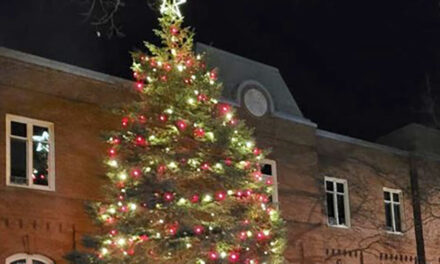By BOB BURGESS
MELROSE — After a couple fits and starts, Melrose is ready to continue its discussion on the future of its alcohol service in restaurants.
The city’s Liquor License Commission will hold a public hearing Thursday, March 19, at 7 p.m. in Memorial Hall on various proposals put forth by Mayor Robert J. Dolan and his team designed to bring more restaurants into the city and to allow smaller ones already here to better serve their customers.
In the last several years the city has come a long way from its decades-long reputation as a “dry” community. In the early 1990s, Turner’s and Stearns and Hill were the first restaurants to get liquor licenses. In the years since, beer and wine shops have been allowed to operate in Melrose.
Dolan has wanted to help the local food service industry any way he can. The goals of the proposed changes are three-fold:
• Allow current license-holding restaurants to operate more efficiently and in a manner that is generally expected in the industry;
• Promote a more uniform enforcement of the rules for restaurants; and
• Confirm and reiterate Melrose’s requirement that all license holders be top-quality restaurants with wait-staffed table service.
Two of the proposed changes would also have to go before the aldermen and then, if approved, the state Legislature for passage. One is a recommendation to lower the minimum seating capacity for a full liquor licenses to 50 patrons. The other is to lower the minimum seating to 25 patrons for beer and wine only.
The mayor formed a Liquor Licensing Advisory Committee last summer. Following are the committee’s proposed amendments to the city’s liquor regulations.
1. License Fees (Section I(C)): This amendment is designed to prevent a business owner from being financially penalized by applying for a new license late in the calendar year. Currently, all licenses must be renewed by December 31. Conceivably, a restaurant owner could be granted a license in October, at a cost of $2,500, and be required to renew the license only 30 days later, at an additional cost of $2,500. This does not appear to be the intent of the regulations, but it is an effect of them.
2. Grace Period for Renewal Applications (Section I(F)): If a license holder does not apply for renewal at least forty-five (45) days prior to December 31, which is often the height of the busy season for restaurants, then the application is treated as a new application as opposed to a renewal. This change would give the Commission discretion to waive the forty-five (45) day requirement, if the Commission finds good cause or excusable neglect. It does not give the Commission discretion to waive the requirement for inexcusable neglect.
3. Operations After-Hours (Section I(H)): This amendment confirms that a restaurant’s employees and contractors may remain on the premises after closing, but only if they are engaged in cleaning, maintenance or repairs. Additionally, Massachusetts law requires that a license-holder and key employees have unfettered access to the premises at all hours of the day and evening.
4. Food requirement for liquor consumption (Sections II(C) and IV(B)) : Currently, the regulations provide that no alcoholic beverages may be served unless the customer orders a full meal (“meal” being undefined). A few license holders expressed concern that this rule is not uniformly enforced. The Mayor’s recommendation is to allow restaurants to serve up to one (1) drink without an order of food, and thereafter beverage service must be accompanied by an order of food from the menu. This would allow, for example, residents to enjoy a drink prior to an evening at Melrose Symphony or activities outside of Melrose, without requiring a dinner order.
At the same time, this change confirms that the customer must order some type of food from the restaurant’s menu, be it a full dinner, a salad, an appetizer or other item. A free bowl of chips or popcorn, for example, would not suffice under this regulation.
5. Service of Beverages in Pitchers, or Pre-Mixed (Sections II(D), II(G)(11) and IV(D)): The regulations do not allow any to be served in pitchers, or to be served out of a pre-mixed batch. This constitutes a ban on pitchers of beer, which the Mayor suggests is a good policy; but it also bans the service of, for example, pre-made margaritas, sangria, or any other beverage that uses a pre-mixed formula.
The service of wine, or wine-based beverages such as sangria, from a carafe or decanter is a staple of a fine restaurant in the Greater Boston area. The proposed amendments continue a ban upon any beverages served out of a pitcher, however wine and wine-based beverages may be served from a decanter which does not exceed one (1) liter.
6. Minimum Seating Capacity (Section II(E) and IV(I)): The recommendation is to lower the minimum seating capacity for a full liquor licenses to 50 patrons, and to 25 patrons for beer and wine only. This amendment, however, can – and should — only come after a full public hearing process before both the Board of Aldermen and the State Legislature.
7. Outdoor seating (Section II(F)): Our current regulations do not give any guidelines on location or structure for outdoor seating. The Mayor believes that outdoor seating, adjacent to the restaurant and sufficiently screened to prevent the public from wandering in and out, is typical of a high-quality modern restaurant and necessary to compete with surrounding towns.
8. Definition of table service (Sections I(S)(15), IV(E), IV(F)): The committee feels it would benefit the City and the Commission to more narrowly define table service, to ensure that all license-holders have tables with proper dinnerware, served by wait-staff, and to prevent ordering alcoholic beverages at the counter. This is especially important if the City adopts the minimum seating change, described above.




